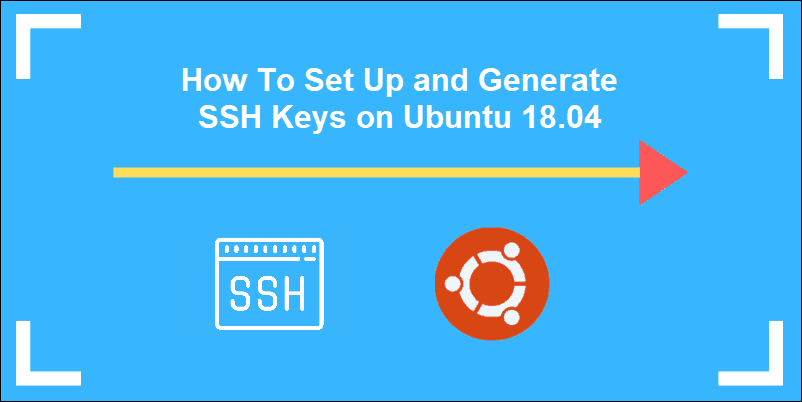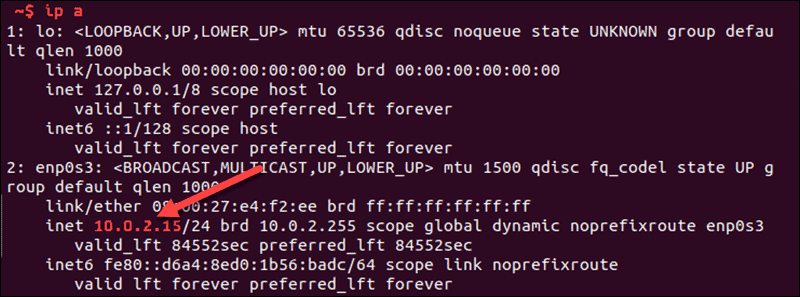How To Create Rsa Key In Linux
Introduction
Establishing an SSH (Secure Shell) connection is essential to log in and effectively manage a remote server. Encrypted keys are a set of access credentials used to establish a secure connection.
This guide will show you how to generate SSH keys on Ubuntu 18.04. We will also cover setting up SSH key-based authentication to connect to a remote server without requiring a password.

Prerequisites
- A server running Ubuntu 18.04, SSH enabled on Ubuntu
- A user account with sudo privileges
- Access to a terminal window/command line (Ctrl-Alt-T)
Creating SSH keys on Ubuntu
Step 1- Generate the SSH Key Pair
On your client system – the one you're using to connect to the server – you need to create a pair of key codes.
To generate a pair of SSH key codes, enter the commands:
mkdir –p $HOME/.ssh chmod 0700 $HOME/.ssh ssh-keygen This will create a hidden directory to store your SSH keys, and modify the permissions for that directory. The ssh-keygen command creates a 2048-bit RSA key pair.
For extra security, use RSA4096:
ssh –keygen –t rsa 4096 If you've already generated a key pair, this will prompt to overwrite them, and those old keys will not work anymore.
The system will ask you to create a passphrase as an added layer of security. Input a memorable passphrase, and press Enter.
This process creates two keys. One is a public key, which you can hand out to anyone – in this case, you'll save it to the server. The other one is a private key, which you will need to keep secure. The secure private key ensures that you are the only person who can encrypt the data that is decrypted by the public key.
Step 2- Copy Public Key to the Ubuntu Server
First, get the IP address of the Ubuntu server you want to connect to.
In a terminal window, enter:
ip a The system's IP address is listed in the second entry:

On the client system, use the ssh-copy-id command to copy the identity information to the Ubuntu server:
ssh-copy-id [email protected]<server_IP> Replace server_IP with the actual IP address of your server.
If this is the first time you're connecting to the server, you may see a message that the authenticity of the host cannot be established:
The authenticity of host '192.168.0.15 (192.168.0.15)' can't be established. ECDSA key fingerprint is fd:fd:d4:f9:77:fe:73:84:e1:55:00:ad:d6:6d:22:fe. Are you sure you want to continue connecting (yes/no)? Type yes and press Enter.
The system will check your client system for the id_rsa.pub key that was previously generated. Then it will prompt you to enter the password for the server user account. Type it in (the system won't display the password), and press Enter.
The system will copy the contents of the ~/.ssh/id_rsa.pub from the client system into the ~/.ssh/authorized_keys directory of the server system.
The system should display:
Number of key(s) added: 1 Alternate Method to Manually Copy the SSH Key
If your system does not have the ssh-copy-id command, you can copy the key manually over the SSH.
Use the following command:
cat ~/.ssh/id_rsa.pub | ssh [email protected]_host "mkdir -p ~/.ssh && touch ~/.ssh/authorized_keys && chmod -R go= ~/.ssh && cat >> ~/.ssh/authorized_keys" Step 3- Log in to the Remote Server
To log in to a remote server, input the command:
ssh [email protected]_IP The system should not ask for a password as it is negotiating a secure connection using the SSH keys. If you used a security passphrase, you would be prompted to enter it. After you do so, you are logged in.
If this is the first time you've logged into the server, you may see a message similar to the one in part two. It will ask if you are sure you want to connect – type yes and press Enter.
Step 4- Disable Password Authentication
This step creates an added layer of security. If you're the only person logging into the server, you can disable the password. The server will only accept a login with your private key to match the stored public key.
Edit the sshd_config file:
sudo nano /etc/ssh/sshd_config Search the file and find the PasswordAuthentication option.
Edit the file and change the value to no:
... PasswordAuthentication no ... Save the file and exit, then restart the SSH service:
sudo systemctl restart ssh Verify that SSH is still working before ending the session:
ssh [email protected]_IP If everything works, you can close out and resume work normally.
Conclusion
By following the instructions in this tutorial, you have setup SSH-key-based authentication on an Ubuntu 18.04 server.
The connection is now highly secure as it uses a set of unique, encrypted SSH keys.
Was this article helpful?
Yes No
How To Create Rsa Key In Linux
Source: https://phoenixnap.com/kb/generate-setup-ssh-key-ubuntu
Posted by: dickensanyted.blogspot.com

0 Response to "How To Create Rsa Key In Linux"
Post a Comment